In today’s world, search engines are an essential part of our daily lives. Whether it’s finding a product, researching a service, or simply browsing for information, we all rely on them.
But how do you choose the right one for your needs?
While Google dominates the market, Bing is a strong competitor, and DuckDuckGo offers a privacy-first experience.
Let’s dive into this ultimate face-off: Google vs Bing vs DuckDuckGo. Which one fits your needs best, and how can each search engine impact your online experience?
1. Google: The Most Popular Search Engine
Google is the world’s most popular search engine. It’s responsible for more than 92% of all searches globally. But why is Google so dominant?
1.1 Search Attributes
Google stands out because it provides a huge range of search features. From localized search results based on your location to integrations with Google Maps, Google ensures you get the most relevant information.
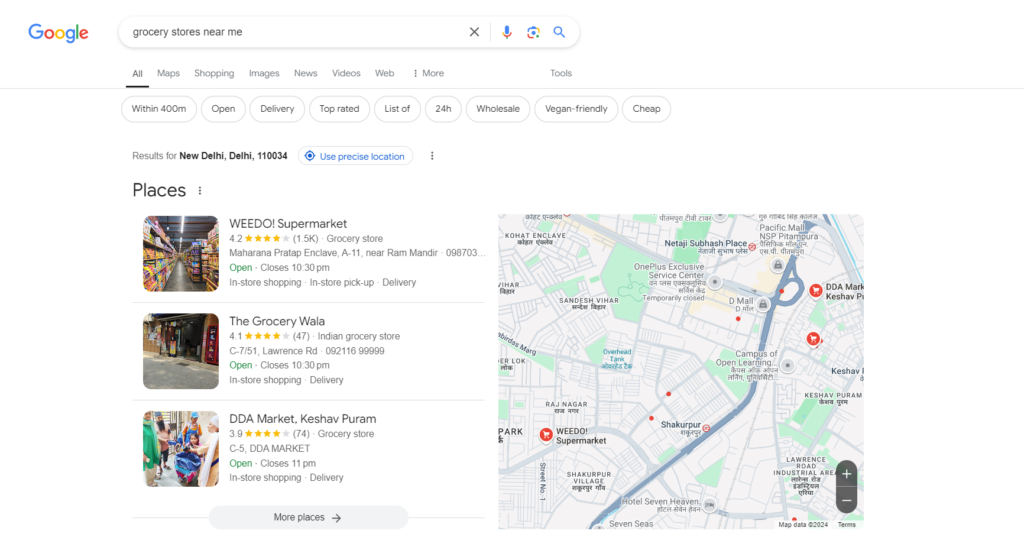
For instance, if you search for “grocery stores near me,” Google pulls in data from Google Maps to show you nearby supermarkets. It also tries to understand your search intent. If you type in “best pizza,” Google might assume you’re looking for pizza places and show you options nearby.
Google also excels at providing quick answers through its featured snippets. Want to know the capital of France? Just type “capital of France,” and Google will give you the answer at the top of the results.
Another unique aspect is the range of features beyond standard searches. From weather updates to instant calculations, Google offers numerous tools. You can track packages, check traffic conditions, and even find local events. Google’s Doodles are another fun element. These interactive logos celebrate events and notable figures, adding a touch of personality to your search experience.
The convenience is unbeatable. That’s what makes Google stand out in the Bing vs Google vs DuckDuckGo debate.
1.2 Index Technique
Google’s ability to crawl, index, and rank web pages is incredibly advanced. It reads content from all over the web, including text, images, and other files. Then, it analyzes this data to understand what each web page is about and how it can serve your needs.
1.3 End-user Privacy
However, Google’s power comes at a cost—your privacy. Google collects vast amounts of data about you and your online activities. It uses this data for advertising purposes, which has led to several legal challenges and concerns over privacy. If privacy is important to you, this might be a drawback in the DuckDuckGo vs Google vs Bing conversation.
1.4 End-user Gratification
Despite these privacy concerns, Google remains the most user-friendly search engine. The interface is clean, easy to navigate, and offers quick, precise results. Whether you’re searching for news, images, or shopping, Google provides an intuitive experience.
1.5 Homepage Design
Google’s homepage is iconic, but it has remained quite simple over the years. With lots of white space and occasional Google Doodles, it keeps the focus on searching. It’s not flashy, but it’s effective.
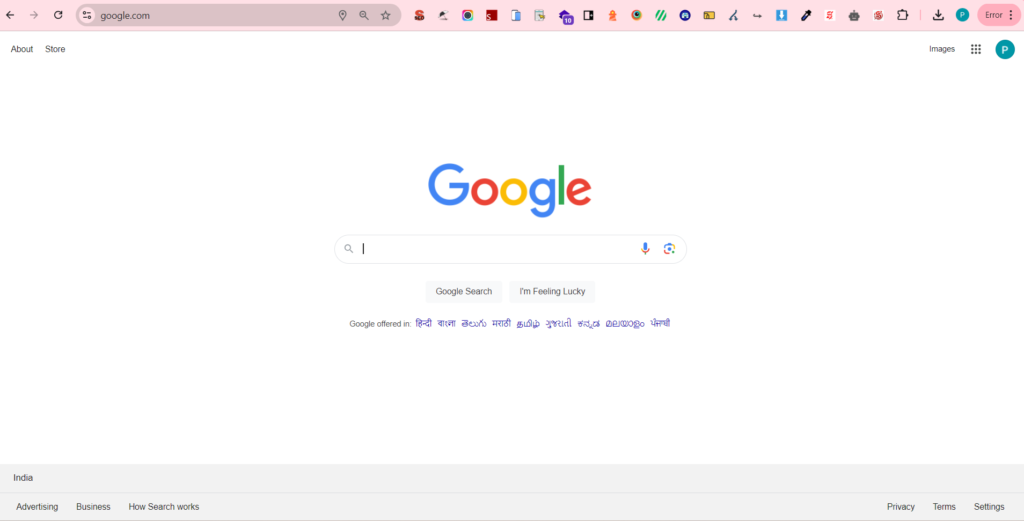
If you’re looking for a search engine that’s reliable, fast, and widely trusted, Google is hard to beat.
2. Bing: A Close Competitor to Google
Microsoft’s Bing may not be as popular as Google, but it’s still the second most-used search engine in the world. And it has a few tricks up its sleeve.
2.1 Search Attributes
Bing’s standout feature is its video search. The results are displayed in an easy-to-navigate grid format, making it simple to find what you need without leaving the search results page. You can watch video previews right from Bing’s results page without having to go to the video’s original site.
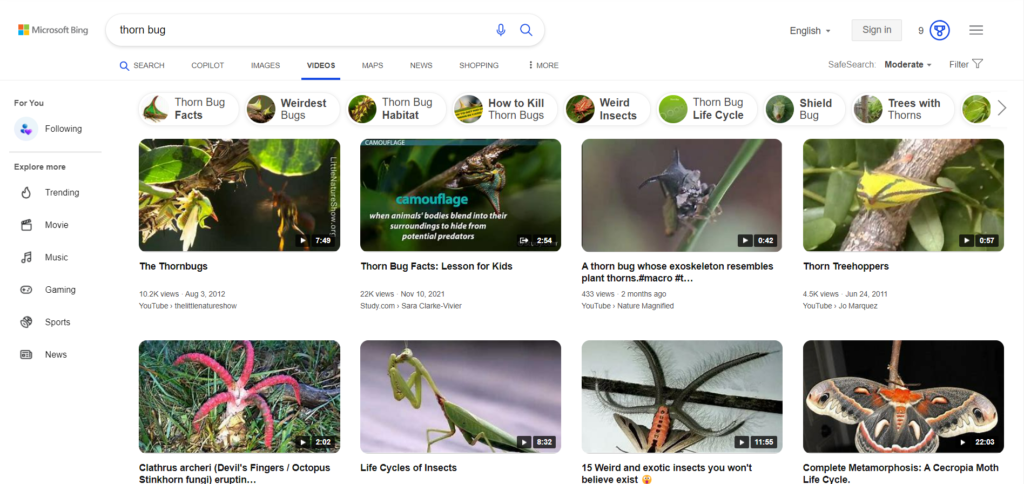
Bing also offers an image search with several filters that make it easier to refine your search. You can filter by size, color, layout, and even style, giving you more control over what you see.
One standout feature is Microsoft Rewards. Bing rewards users with points for every search, which can be redeemed for gift cards or discounts on Microsoft products. This gamification makes searching on Bing rewarding, quite literally!
Bing provides a Timeline feature that showcases key events in the lives of famous individuals. This contextual information adds depth to search results.
2.2 Index Technique
Bing’s indexing process places a strong emphasis on content quality and user experience. It focuses on three things:
- Trustworthiness of the website
- Content quality
- User-friendliness
These factors help Bing rank web pages and ensure that the results you get are relevant and high-quality.
2.3 End-user Privacy
Like Google, Bing collects data from users. However, Microsoft provides some control over privacy settings. Users can choose to limit what data is collected and how it’s used. Still, it doesn’t offer the same level of privacy as DuckDuckGo, which will play a key role in the DuckDuckGo vs Bing vs Google debate.
2.4 End-user Gratification
Bing’s interface is visually appealing. It features a daily changing background image, which can make your search experience more enjoyable. If you appreciate aesthetics and want a search engine that provides a bit of fun, Bing is a solid option. It also has a rewards program where you earn points for using Bing, which can be redeemed for gift cards and other perks.
2.5 Homepage Design
Bing wins in the aesthetics department. Its homepage is filled with vibrant images and customizable features, inviting users to explore. While Google gets straight to the point, Bing encourages you to discover other interesting topics.
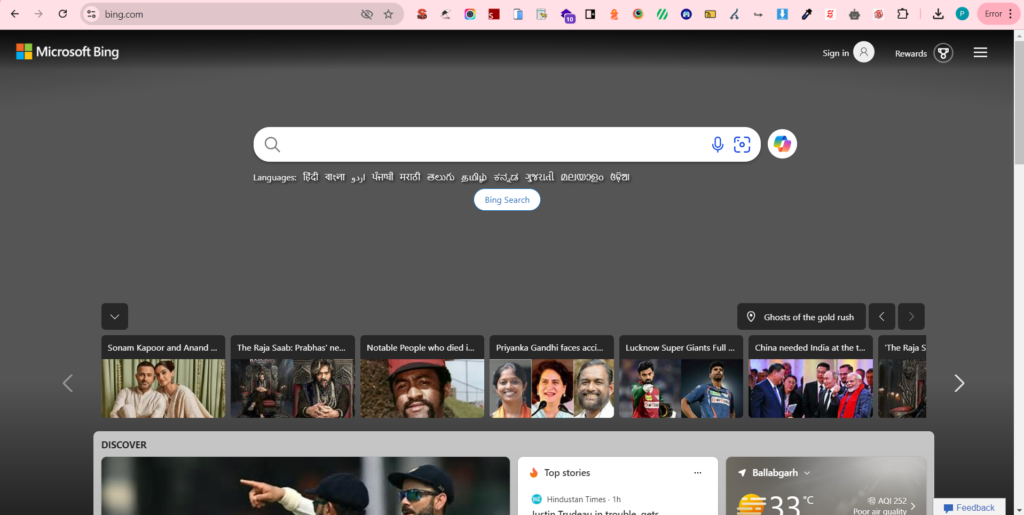
3. DuckDuckGo: The Privacy-Focused Search Engine
Now, let’s talk about DuckDuckGo. This search engine is growing in popularity because of its commitment to privacy. It’s a great choice if you’re tired of being tracked online and want a search engine that doesn’t store your personal data.
3.1 Search Attributes
DuckDuckGo offers a unique feature called Bangs. This allows you to search directly on other websites by typing a simple command.
For example, by typing “!w” before your query, you can search Wikipedia directly from DuckDuckGo. With over 13,000 bangs available, this makes searching incredibly fast and convenient.
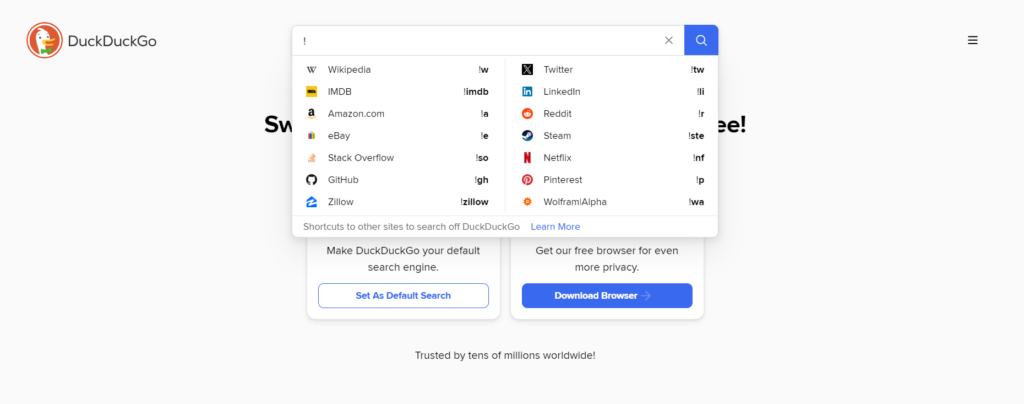
Another strong attribute is DuckDuckGo’s instant answers. For queries like “best pizza toppings,” DuckDuckGo displays relevant information right at the top, streamlining the search process. DuckDuckGo uses its own web crawler, DuckDuckBot, to index content from over 400 websites, ensuring users receive reliable information.
3.2 Index Technique
DuckDuckGo uses over 400 sources, including DuckDuckBot (their web crawler), to provide search results. They pull information from trustworthy websites like Wikipedia to offer accurate and reliable data. The goal is to give you relevant search results without compromising your privacy.
3.3 End-user Privacy
Unlike Google and Bing, DuckDuckGo doesn’t collect or share any of your personal information. They don’t track you across the web, and there’s no need to worry about your search history being used for advertising. In the DuckDuckGo vs Google vs Bing debate, this is DuckDuckGo’s biggest advantage.
3.4 End-user Gratification
DuckDuckGo has a simple, easy-to-use interface that’s similar to Google but without the clutter. It’s not as feature-rich as Google or Bing, but it delivers exactly what it promises—reliable search results with no privacy concerns.
3.5 Homepage Design
The design of DuckDuckGo is reminiscent of Google, but it includes color themes and dark mode options. The search bar remains the focal point, ensuring a straightforward experience.
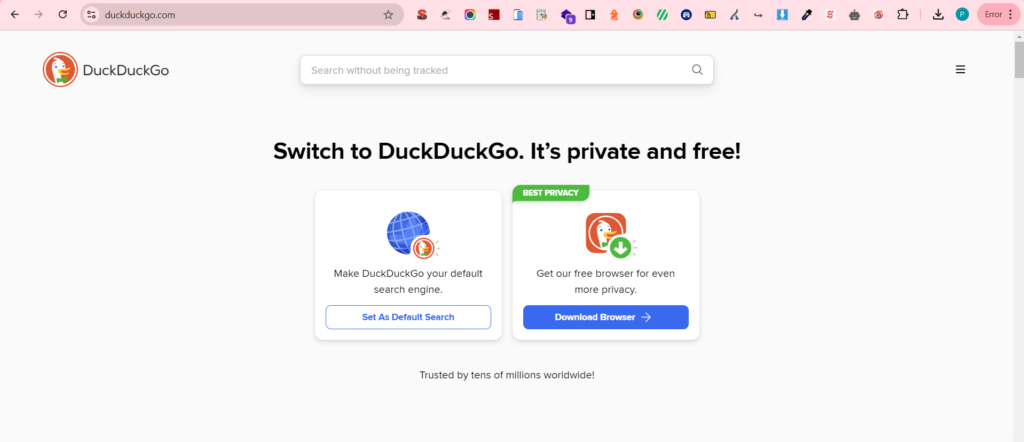
Choosing the Best Search Engine: Google vs Bing vs DuckDuckGo
Now that we’ve looked at the features, strengths, and weaknesses of Google, Bing, and DuckDuckGo, the question remains: which one is best for you?
It all depends on your needs.
- If you prioritize privacy above everything else, DuckDuckGo is the clear winner. It doesn’t track you and ensures your searches remain private.
- If you want a visually engaging experience, Bing might be the right choice for you. Its beautiful design and rewarding search experience add an extra layer of enjoyment to your online activities.
- if you want the most comprehensive and powerful search experience, Google is still the top choice. It offers unbeatable search options, integrated services, and lightning-fast results.
In the Bing vs Google vs DuckDuckGo showdown, each engine has its advantages. It ultimately comes down to what matters most to you.
If you’re looking for user-friendly features, Google is unmatched. For a more rewarding experience, Bing stands out. But for privacy-focused browsing, DuckDuckGo is a solid choice.
Conclusion: Your Ideal Search Engine Awaits
At Reliqus Consulting, we believe that finding the right search engine can make a big difference in your online experience. Whether you choose Google, Bing, or DuckDuckGo, each search engine offers unique features tailored to different needs. The key is to decide what’s most important to you—privacy, aesthetics, or power.
No matter which one you choose in the DuckDuckGo vs Bing vs Google battle, it’s essential to align your decision with your browsing habits and preferences. Google may dominate, but Bing and DuckDuckGo are excellent alternatives that shouldn’t be overlooked.

